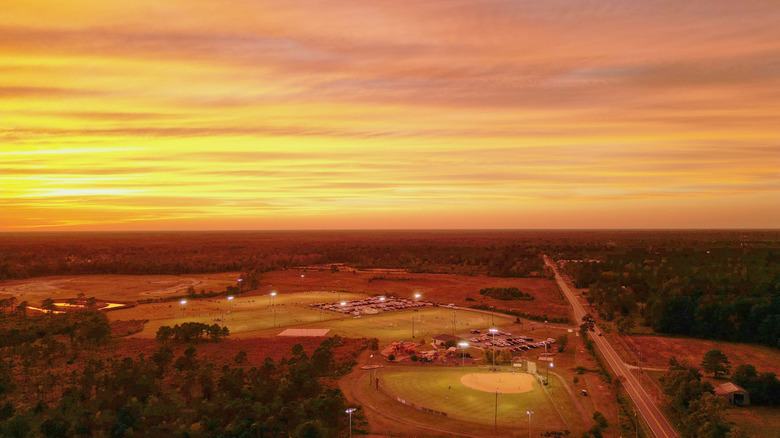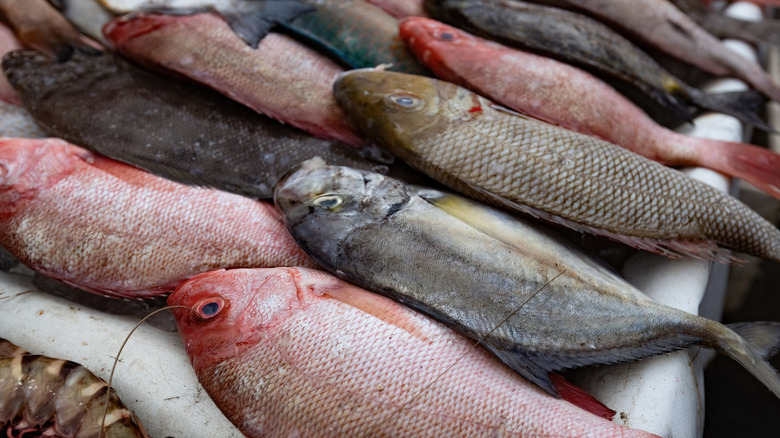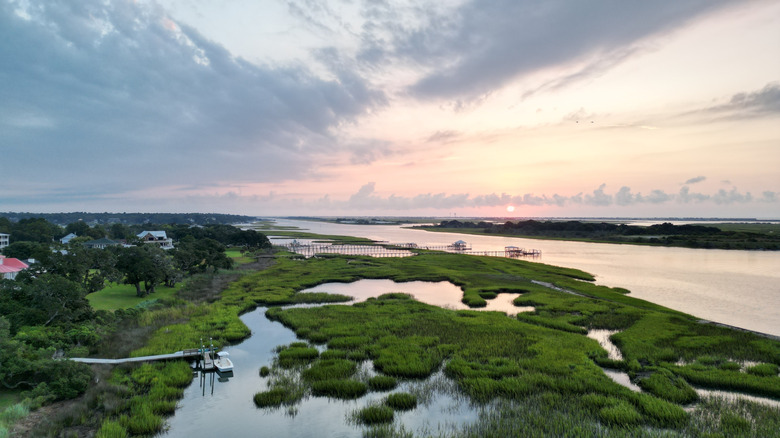The 'Seafood Capital Of The Carolina's' Is A Charming Town Bursting With Fresh Coastal Flavor
One of the best reasons to visit the Southeast coast of the United States is to indulge in some of the best seafood in the region. North Carolina, specifically, has two spots that are well-known for offering fresh, locally sourced seafood. The first is the "world's most famous seafood town" of Calabash, and the second is the "seafood capital of the Carolinas," Hampstead. As you drive into Hampstead, you'll even see a sign with the moniker.
However, unlike Calabash, Hampstead's claim to fame is a bit more abstract. At first, you might assume that there are incredible seafood restaurants and buffets, or at least a handful of world-class eateries specializing in fish and crab boils. But there's none of that within this unincorporated city. In fact, you'd be hard-pressed to find a bona fide seafood restaurant within its borders.
So, that begs the question, why is Hampstead the self-proclaimed "seafood capital of the Carolinas?" To answer that question, we must dig a little into the city's history and location. Also, if you're wondering whether Hampstead would be a good travel destination for seafood lovers, the short answer is yes, but there's a bit more to it than that.
Why is Hampstead considered the seafood capital of North Carolina?
There are two primary (and one bonus) reasons why Hampstead calls itself the "seafood capital of the Carolinas." First, it's been the home of the North Carolina Spot Festival since 1963. If you're unfamiliar with local fish species, spot are native to the East Coast and thrive in the Intracoastal Waterway surrounding Hampstead. The festival was a way to enjoy the fish while celebrating the community. Today, the event has live music, games, and spot fish dinners for only $8 (at the time of this writing).
The second primary reason for Hampstead's title is that it's home to Atlantic Seafood, a regional distributor. However, even though Atlantic Seafood ships wholesale fish to markets and restaurants along the coast, it's also open to the public. So, if you're looking for fresh fish at wholesale prices, you can pack up your car with as much as you can carry (and afford).
The bonus reason why Hampstead is the seafood capital is due to its location on the Intracoastal Waterway. This network of canals and marshes is perfect for catching all kinds of local seafood species, including hard-shell blue crabs, oysters, southern flounder, and striped mullet. Overall, while you can't buy pre-cooked fish in Hampstead, you can get fresh varieties that are ready to cook and eat.
Planning a seafood trip to Hampstead
Fortunately, getting to Hampstead is pretty easy no matter where you're located. All you have to do is fly into Wilmington airport and drive about 20 minutes north via Highway 17. While you're in Wilmington, you can take advantage and explore America's best riverfront walk, packed with locally owned shops and food.
If you're trying to participate in the Spot Festival, it happens at the beginning of November. The weather in North Carolina is pretty balmy, with highs in the mid-60s or low 70s throughout the month. The other advantage of coming during this time is that you can avoid crowds along the coast. However, you can often enjoy crowd-free beaches at the serene, slow-paced Topsail Island, which is practically next to Hampstead. Topsail (and Wilmington) are also where you'll find the closest accommodations. There are no hotels in Hampstead, though you may find a few vacation rentals to choose from.
Finally, if you're dying for delicious seafood but don't want to catch it yourself or buy in bulk from Atlantic Seafood, there are plenty of options nearby. You can either head further north to the town of Surf City or head back down to Wilmington. Either way, you'll find oyster bars, crab boils, and waterfront dining to sate your hunger and help you appreciate the culinary delights that North Carolina has to offer.


